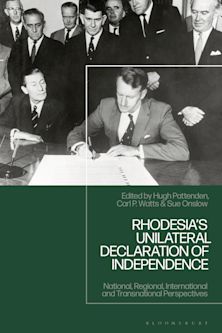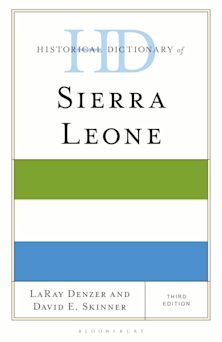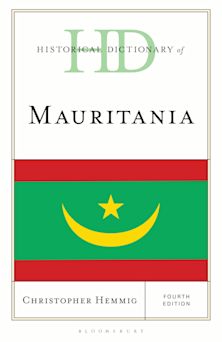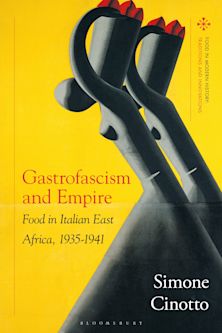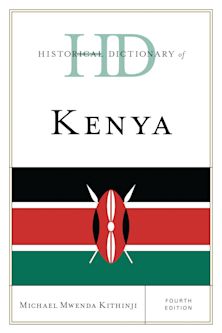- Home
- ACADEMIC
- History
- African History
- Historical Dictionary of Guinea
Historical Dictionary of Guinea
Historical Dictionary of Guinea
You must sign in to add this item to your wishlist. Please sign in or create an account
Description
The most significant thing about Guinea is its potential. It is strategically located in West Africa, with a well-educated and hardworking population, and endowed with considerable natural resources, indeed, enough to make it reasonably affluent if properly utilized. But this potential has never really been tapped, due mainly to bad politics with military men following a charismatic politician, until finally democracy has been achieved. So, more than half-a-century after achieving independence, the question remains unanswered: which way will Guinea turn?
This fifth edition of Historical Dictionary of Guinea covers the full scope of Guinea’s history. This is done through a chronology, an introductory essay, appendixes, and an extensive bibliography. The dictionary section has over 800 cross-referenced entries on key events, leaders, governmental, international, religious, and other private organizations, policies, political movements and parties, economic elements and many other areas that have shaped the country’s trajectory. This book is an excellent access point for students, researchers, and anyone wanting to know more about Guinea.
Product details
| Published | Nov 07 2013 |
|---|---|
| Format | Ebook (Epub & Mobi) |
| Edition | 5th |
| Extent | 446 |
| ISBN | 9780810879690 |
| Imprint | Scarecrow Press |
| Illustrations | 2 b/w illustrations; 2 maps; 3 tables |
| Series | Historical Dictionaries of Africa |
| Publisher | Bloomsbury Publishing |
About the contributors
Reviews
-
It has been a 9 years now since the 4th edition of this title was published, and Dr. O’Toole continues his long authorship of this work. For this edition he is joined by Camara, a Guinea native and professor of history at Embry-Riddle Aeronautical University in Florida, and Baker, a retired public servant who has written on Africa. As with many Third World nations, there is more information available for the turbulent post-1945 period, while the earlier eras suffer in comparison. The dictionary’s information has been revised and updated to reflect the changes in the last 10 years, and there are now over 800 alphabetically arranged entries—twice as many as published in the last edition. A chronology (3500 B.C.E. - 2013 C.E.) supplements the introduction that briefly describes the land and people, the pre-colonial history, and the more recent period since 1984 . . . [T]here are see references, and plentiful cross-references embedded within the text are identified by their heavy black print. The value-added features include a list of acronyms and abbreviations, and lists of government officials (e.g., presidents, prime ministers, governors). The lengthy bibliography is important as it provides a selection of citations to European and African materials not easily found elsewhere. . . .[T]here really are very few reference books on this poor West African country. This item is necessary for all African collections, and suitable for all other academic and large public library reference collections.
American Reference Books Annual

ONLINE RESOURCES
Bloomsbury Collections
This book is available on Bloomsbury Collections where your library has access.












